International Women's Day: Illustrating the Covid-19 pandemic
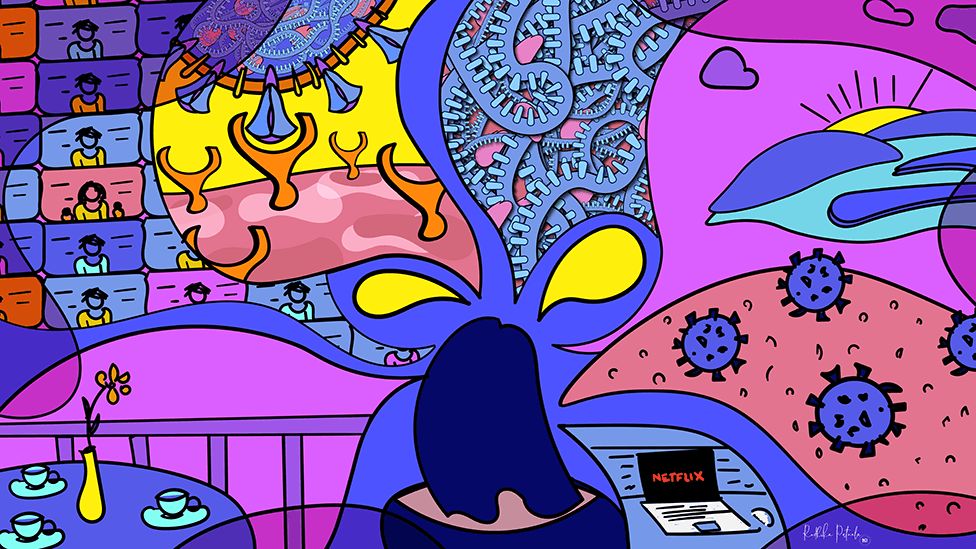 image copyrightDr Radhika Patnala/Sci Illustrate/BBC
image copyrightDr Radhika Patnala/Sci Illustrate/BBCThere's barely any country in the world that hasn't been touched by the coronavirus pandemic and its aftershocks.
But with so much information out there, it's sometimes hard to digest all the details and fully take it in.
Ahead of International Women's Day on 8 March, we invite you to meet three women who are using their artistic talents, combined with their expertise in the fields of science, health and technology to help the fight against coronavirus.

Avesta Rastan: 'You help out in whatever way you can'
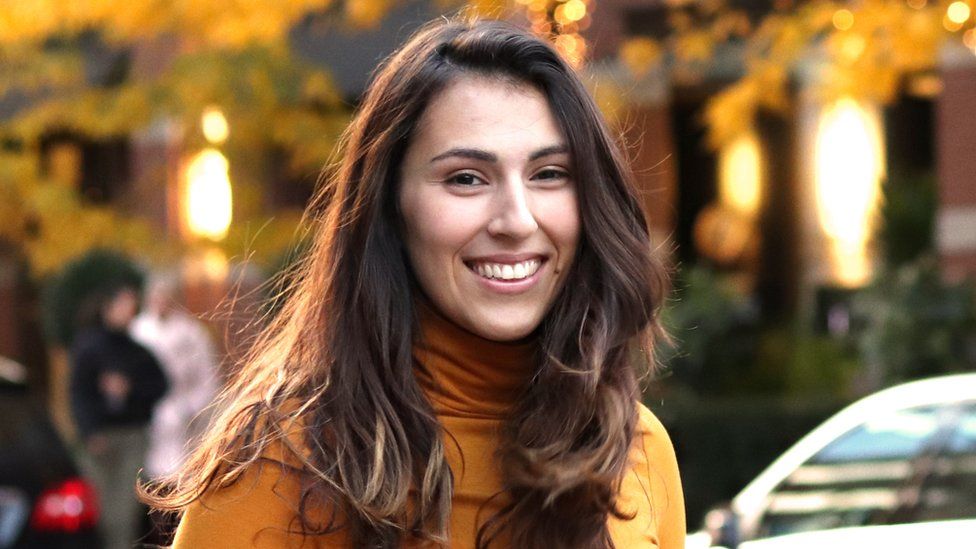 image copyrightAvesta Rastan/ www.azuravesta.com
image copyrightAvesta Rastan/ www.azuravesta.comAvesta Rastan, 25, is a visual science communicator currently living in California.
At the start of the pandemic, she realised there weren't many infographics revealing how Covid-19 directly affected the human body.
So the artist, who is of Iranian and Canadian heritage, and is a member of the Association of Medical Illustrators, saw a unique opportunity to use her skills and her training in pathological illustration (the drawing of disease) to help the wider public.
"I saw lots of illustrations and 3D models of the virus itself and its protein but I didn't really see what it did to us," she explained.
She started investigating and soon created an infographic that unexpectedly went viral on social media. Even the World Economic Forum shared it.
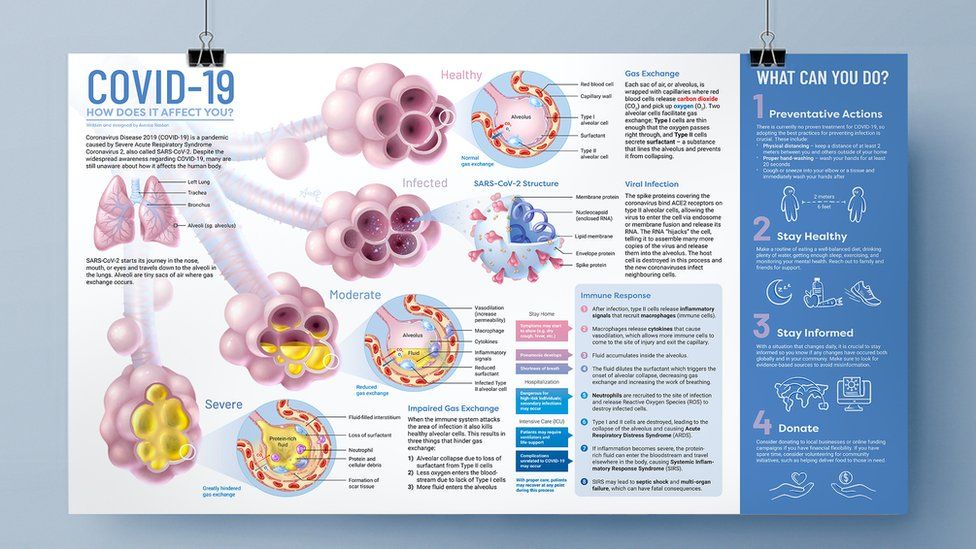 image copyrightAvesta Rastan/ www.azuravesta.com
image copyrightAvesta Rastan/ www.azuravesta.comShe was approached by people all over the world wanting to see the poster in different languages and offering to translate her explanations. It's now available to download in 18 languages on her website.
Rastan says: "I'm not a frontline worker; I'm not in health care, but you help out in whatever way you can and for me that was using my art.
She adds science can have a reputation for being difficult to learn and that does deter people but illustrations bridge that gap and could encourage more to enter her field.
"Science itself isn't hard - it's a natural process for humans; we're naturally curious and want to understand how things work", she adds.
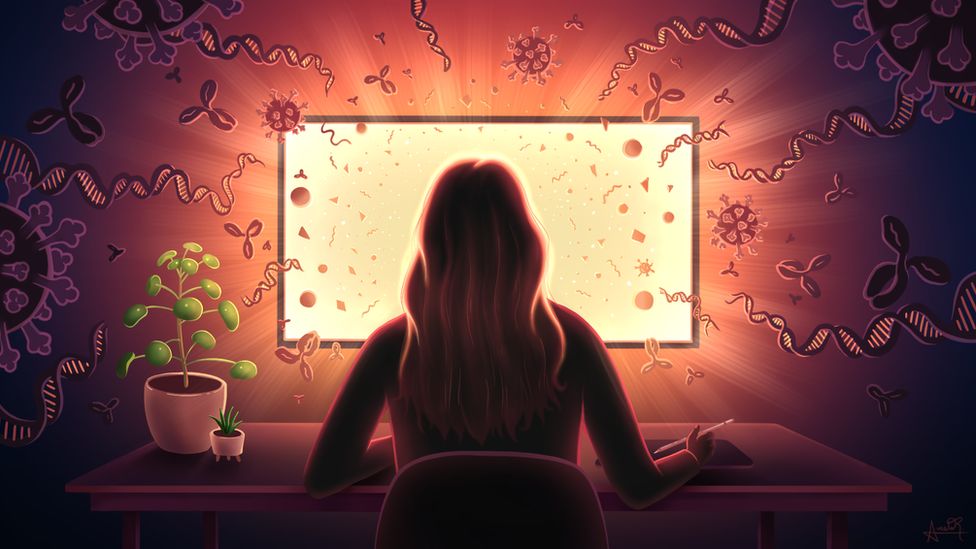 image copyrightAvesta Rastan/Azuravesta Design/BBC
image copyrightAvesta Rastan/Azuravesta Design/BBC In the future she wants to be involved in building educational platforms. But for now, she's spreading the word about her unusual career.
"I have definitely noticed in the past 10 to 20 years there are more women in this field than men. In the older generations it was definitely a male dominated field but now things are changing," she says.
And while the pandemic has been a terrible thing for the world to go through, Rastan admits that for her it did offer a silver lining. She embarked on a freelance career and worked with academic researchers, medical tech start-ups, doctors and surgeons.
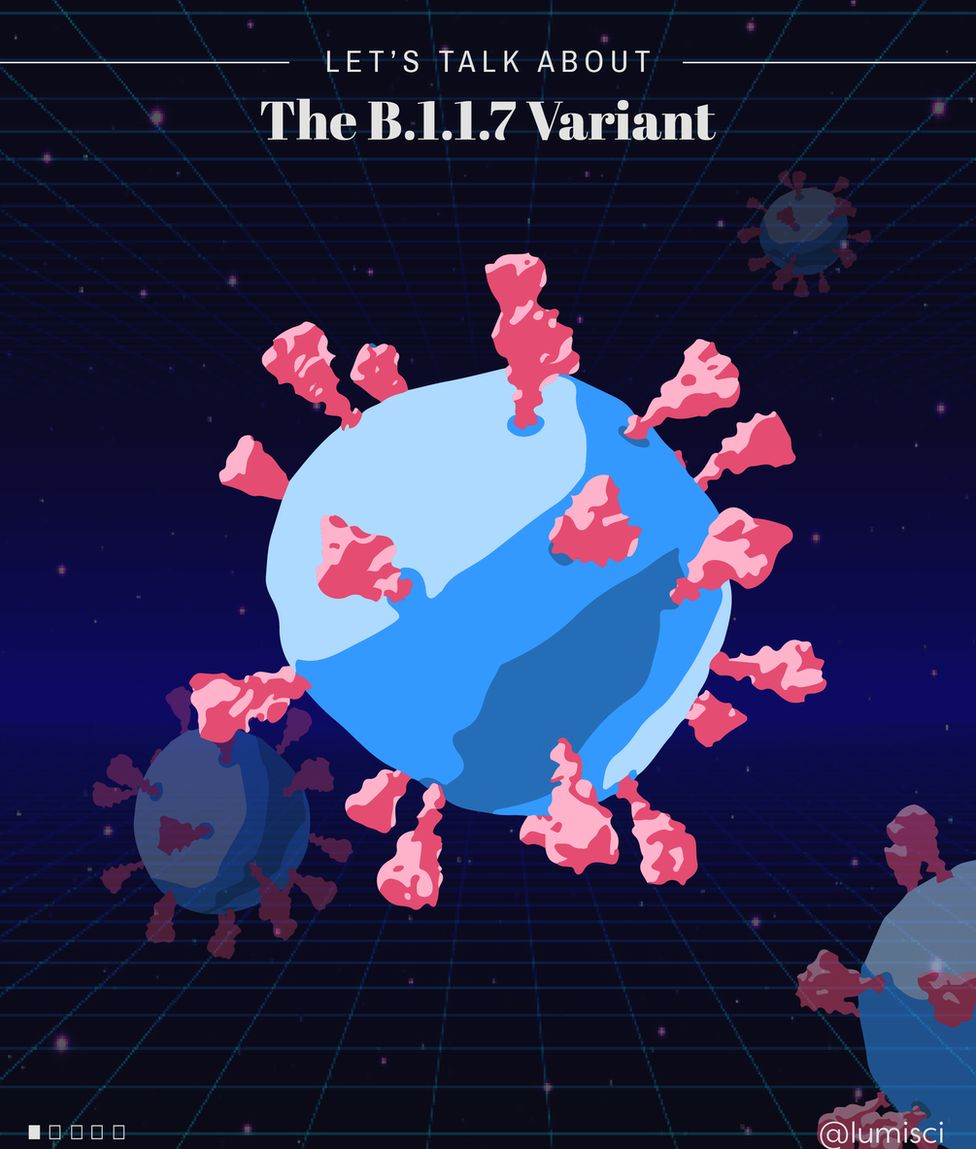 image copyrightAvesta Rastan/ www.azuravesta.com
image copyrightAvesta Rastan/ www.azuravesta.com
Rastan, who finds a lot of her inspiration comes from nature, has a new job in the US now.
But she continues to spend her spare time on a passion project on social media called Lumi Science where she's still visualising the virus and its variants.
"Science communication is so key to society. When you understand something, you're empowered to try to change it or try to mitigate the risk", she says.

Dr Radhika Patnala: 'The pandemic woke everyone up'
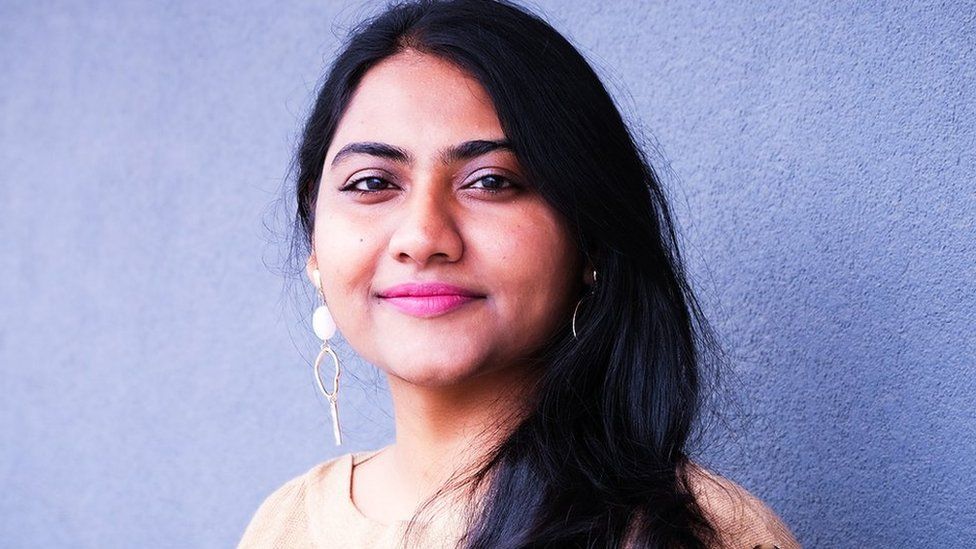 image copyrightRadhika Patnala/ www.sci-illustrate.com
image copyrightRadhika Patnala/ www.sci-illustrate.comDr Radhika Patnala is a neuroscientist and the founder and director of the start-up Sci-Illustrate.
The Indian-born entrepreneur, who studied in Singapore and Australia before moving to Munich, Germany, says one of the beauties of working in science is that the field is incredibly collaborative and crosses geographical and institutional boundaries.
Her company creates science illustrations for a whole range of clients but she also has several passion projects underway, with the most recent focused on her response to the pandemic.
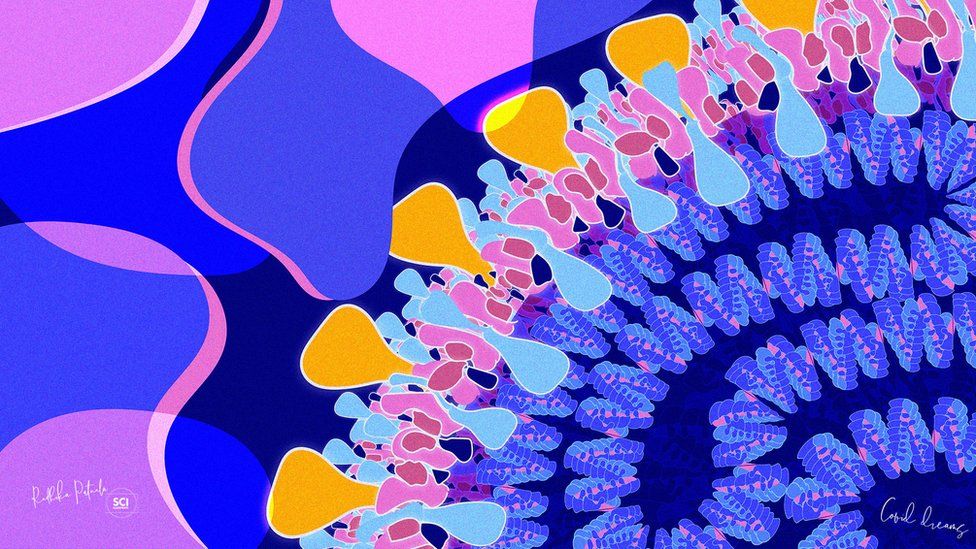 image copyrightRadhika Patnala/ www.sci-illustrate.com
image copyrightRadhika Patnala/ www.sci-illustrate.comIt's a 10-part series of illustrations called Covid Dreams.
"I came across this very interesting piece of information, that people who got Covid-19 were having weird dreams. I thought that was an amazing idea to explore. I also wanted to challenge myself to try to depict something which is very serious and slightly depressing, in an unusual and visually different way," she says.
Her series encompasses different parts of the coronavirus experience, from detailing the nucleo-protein packages within the virus to imagining what someone's mouth inside the mask looks like.
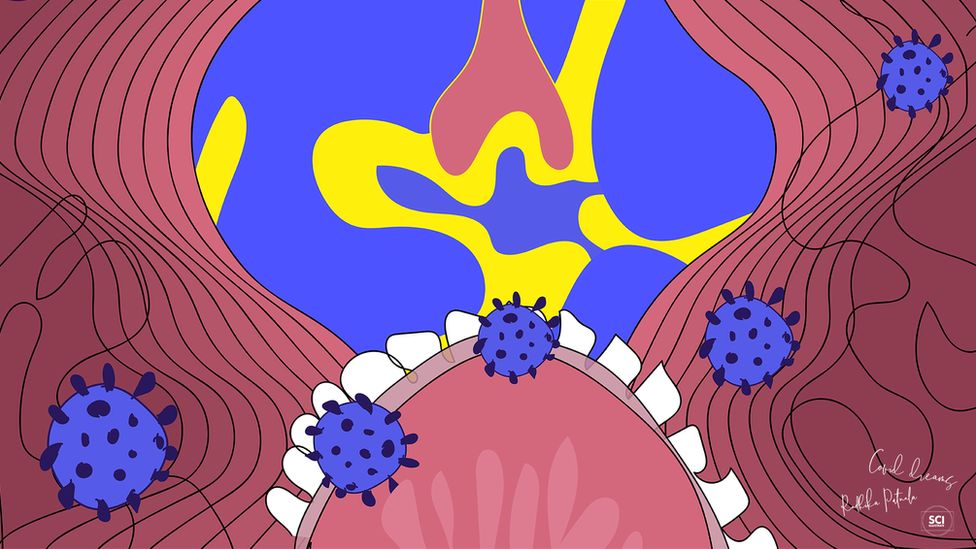 image copyrightRadhika Patnala/ www.sci-illustrate.com
image copyrightRadhika Patnala/ www.sci-illustrate.comIt was when she was doing her doctorate, with a focus on immunology and epigenetics, that Patnala, 32, reconnected with her artistic side.
"I'd be in a neuroanatomy lab and we would look at slices of mice and rat brains and stain them, so we could look at individual cells and the tissue architecture of the brain in detail.
"A lot of my PhD involved looking under a microscope at neural tissue, how the different cells talk to each other and how beautiful the tissue architecture of the organ itself was," she says.
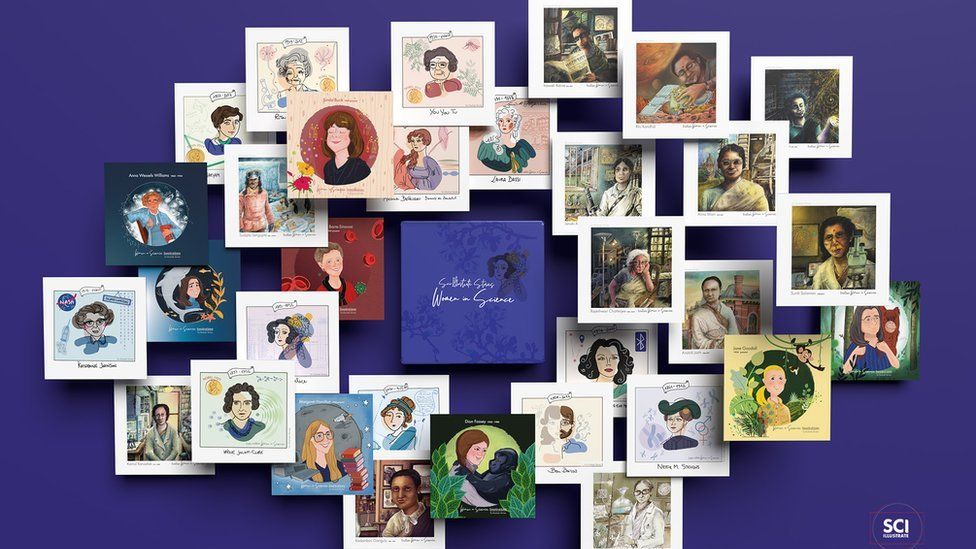 image copyrightRadhika Patnala/ www.sci-illustrate.com
image copyrightRadhika Patnala/ www.sci-illustrate.comFor Patnala, the pandemic has not led to a significant difference to her day job and, with so many in the industry now focusing on virus illustrations, she was continuing to work on visualising other diseases for clients in need.
"There are important things happening all the time in our industry - there are companies looking at cancer therapeutics and trying to find drugs for niche cancer types; there are people working on cardiovascular diseases," she explains.
Stating the science field has always had trouble getting money from policy makers, she suggests perhaps a change is on the way, adding: "The pandemic woke everyone up to the amazing work that people are doing in laboratories all the time."

Nujuum Hashi: 'If I can fight coronavirus others can try'
 image copyrightNujuum Hashi
image copyrightNujuum Hashi
When Nujuum Hashi, 26, caught coronavirus early last year, she refused to let it destroy her creative ambitions and all the dreams she had steadily been working towards over the past few years.
Hashi had given up her career as a nurse in Somaliland to pursue art, despite her family's misgivings about her chosen path, and she resolved that while the pandemic had knocked her strength, it wasn't going to kill her spirit.
Hashi, who is now living in Mogadishu, Somalia, had just returned from a trip to Kenya in April 2020 when she realised that she was sick.
"First I had a headache, then I had a rough throat. I lost my sense of smell and I was shivering and cold; I had dizziness and a migraine. I lost my appetite and even my eyes were very dry and sensitive to light. My brain couldn't do any creative work - I just felt incredibly flat."
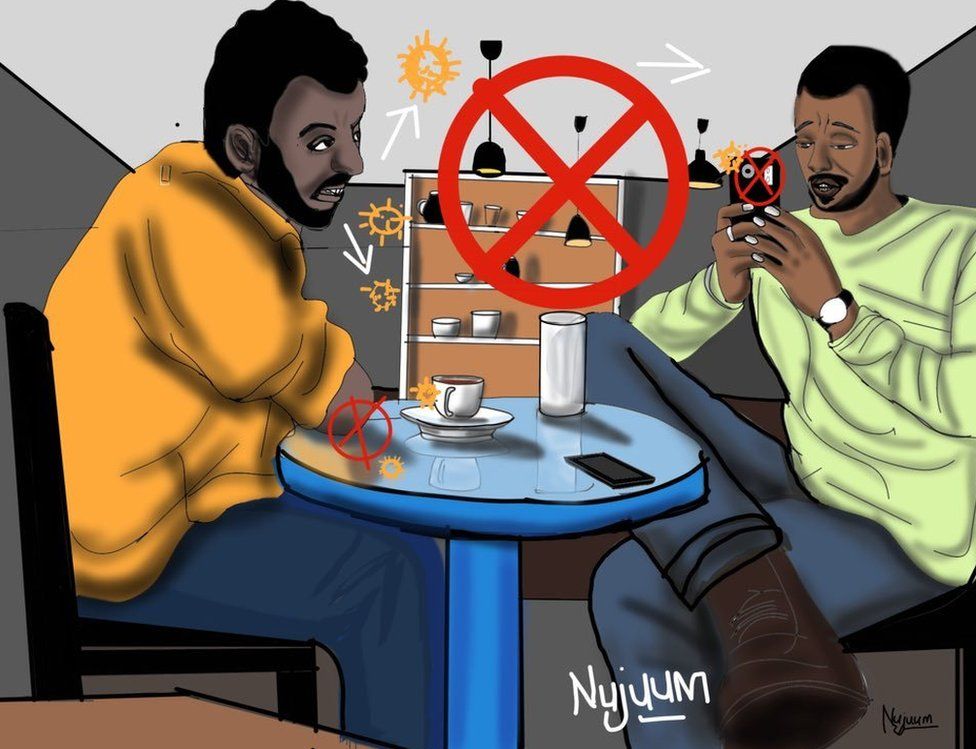 image copyrightNujuum Hashi
image copyrightNujuum Hashi
But while she was self-isolating, she realised it was important for her to stay connected to the world.
"I still tried to do live Instagram art classes - even while I was sick - to entertain others. I'd teach people how to draw faces and hands and other things.
"I wanted to show the world I was fighting corona and that I was doing my best. When I felt my brain was returning to a better place, I did an illustration of me boxing the corona as I wanted to show I was fighting this evil virus. I was angry about the virus and this was a celebration picture.
"If I can fight it; others can try to do so as well."
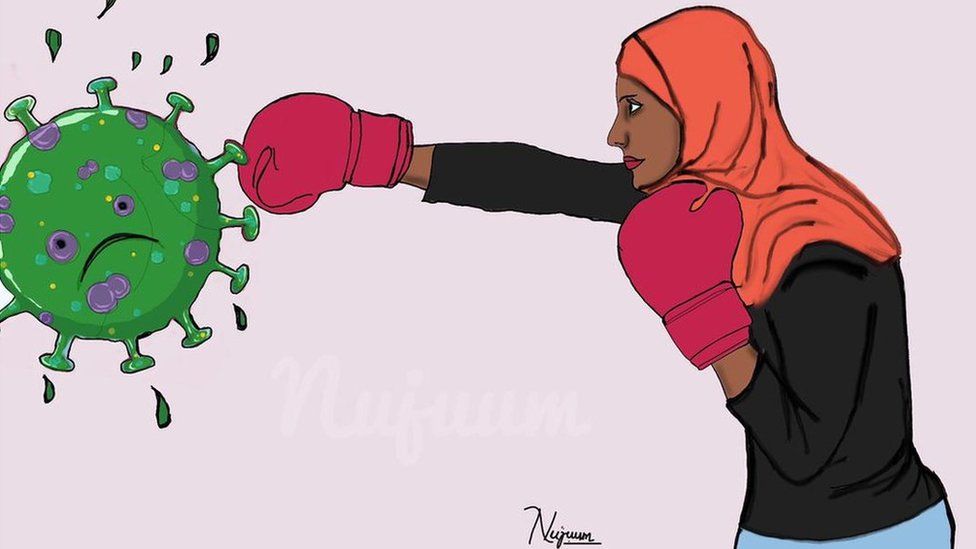 image copyrightNujuum Hashi
image copyrightNujuum Hashi As well as illustrations focusing on her experiences, Hashi has been drawing and painting scenes to encourage others to take care and be more aware of the community around them.
Her illustrations include an image of the Covid-19 virus on a world tour and a drawing in tribute to the frontline doctors and nurses trying to save lives.
Hashi grew up in a medical family - her mother is a midwife, while her late father was an anaesthetist. And it was back in Hargeisa, Somaliland that Hashi herself trained and worked as a nurse. She said it was a job she loved as it meant she could help the community but there came a point in her life when the desire to create art overwhelmed her.
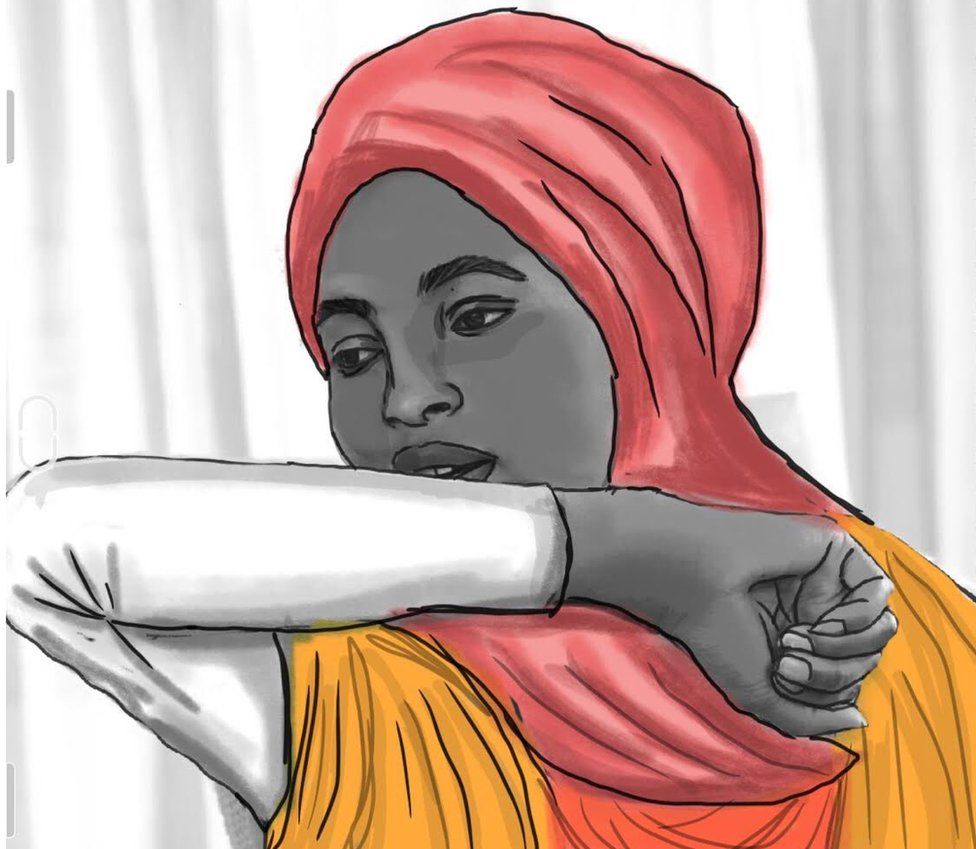 image copyrightNujuum Hashi
image copyrightNujuum Hashi
She says it is not easy being a female artist in Somalia but as a creative person, she feels a personal responsibility to share her talents with the world.
While 2020 was a difficult year, she is optimistic about the future. She plans to continue seeking out more business opportunities, and she wants to use her art to tackle misinformation about the pandemic.
"There's a lot of misunderstanding in our country. Sometimes I have to show people that the right information is here and tell others to stop spreading the wrong information," she says.

The virus has had global ramifications with many calculating women will bear the brunt with long-lasting social and economic effects.
But could the virus be the catalyst for change in traditionally male dominated fields? Reports suggest the pandemic has led to more women considering a career in the sciences.
After all, as these three women stress, education leads to empowerment.



No comments